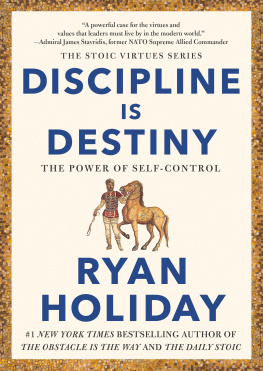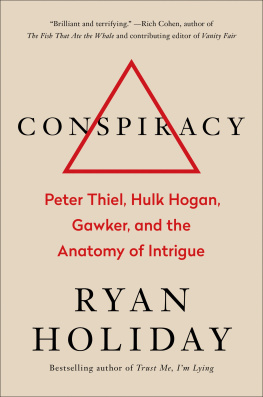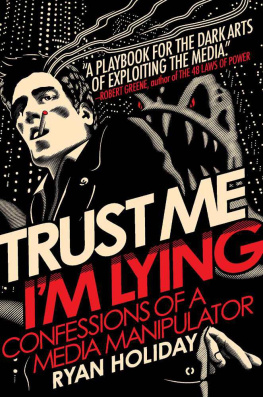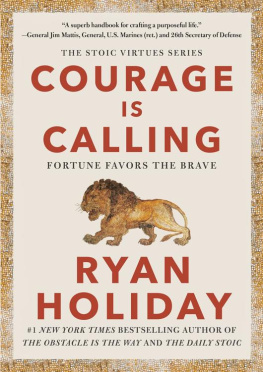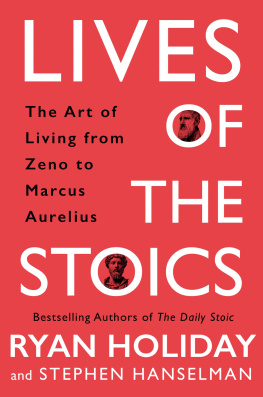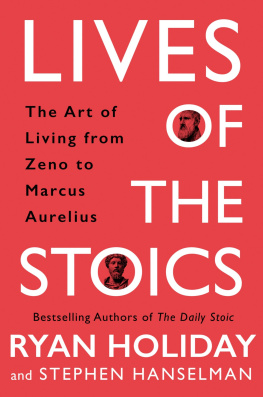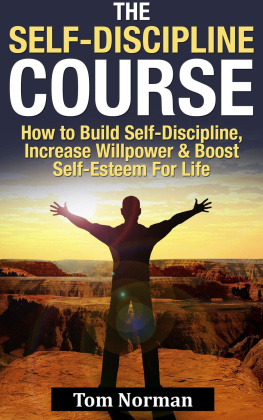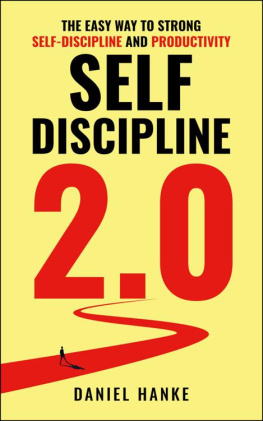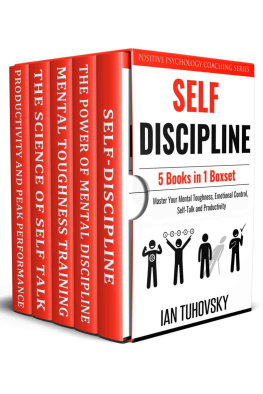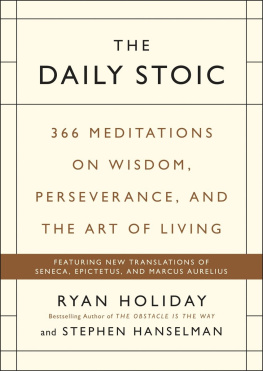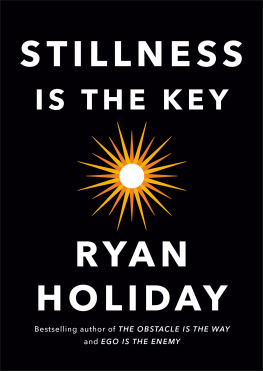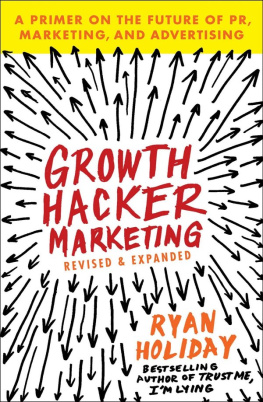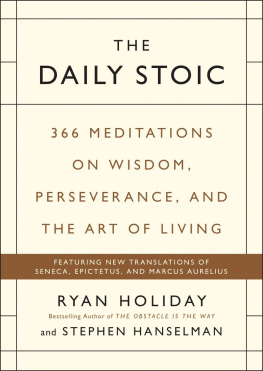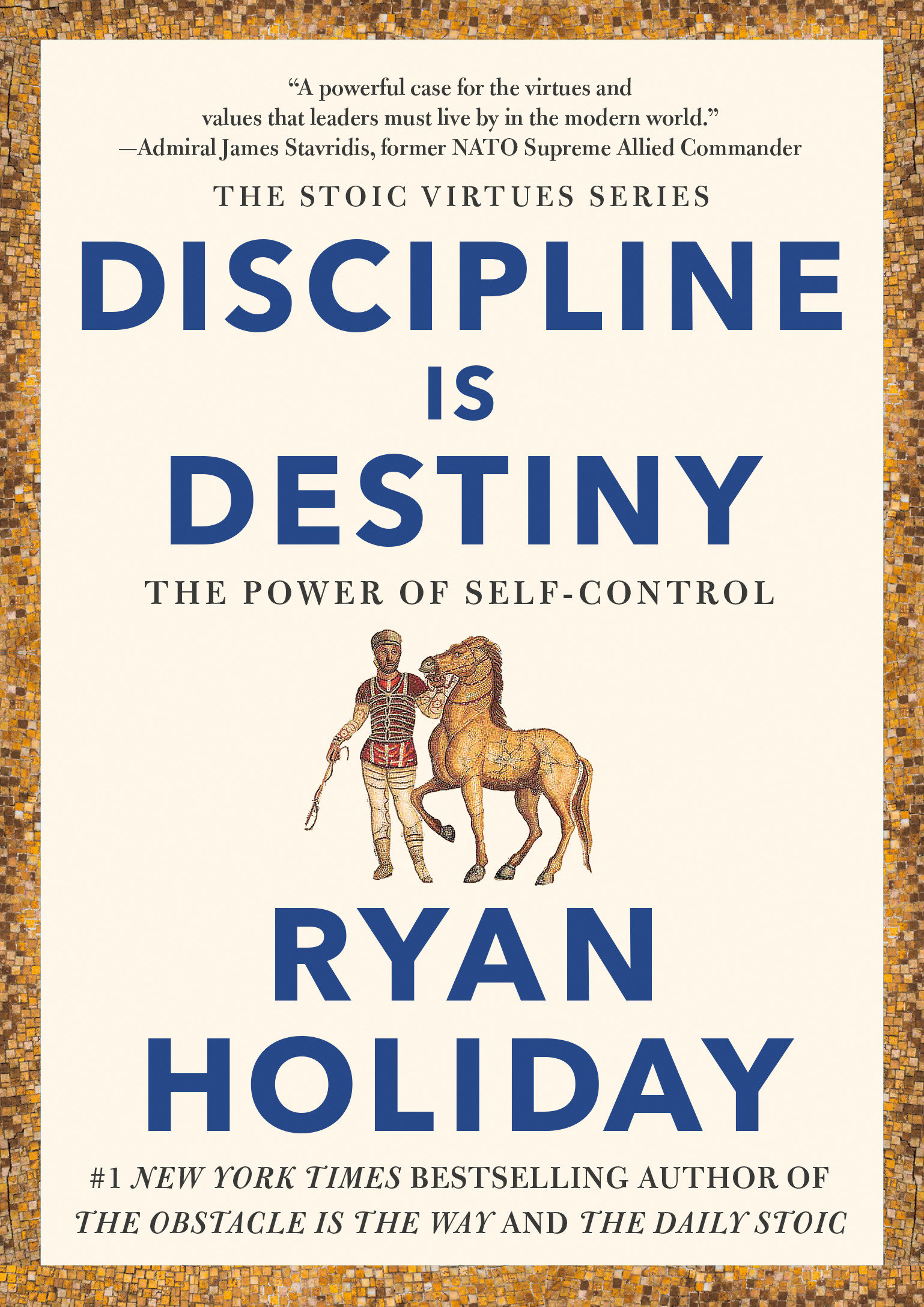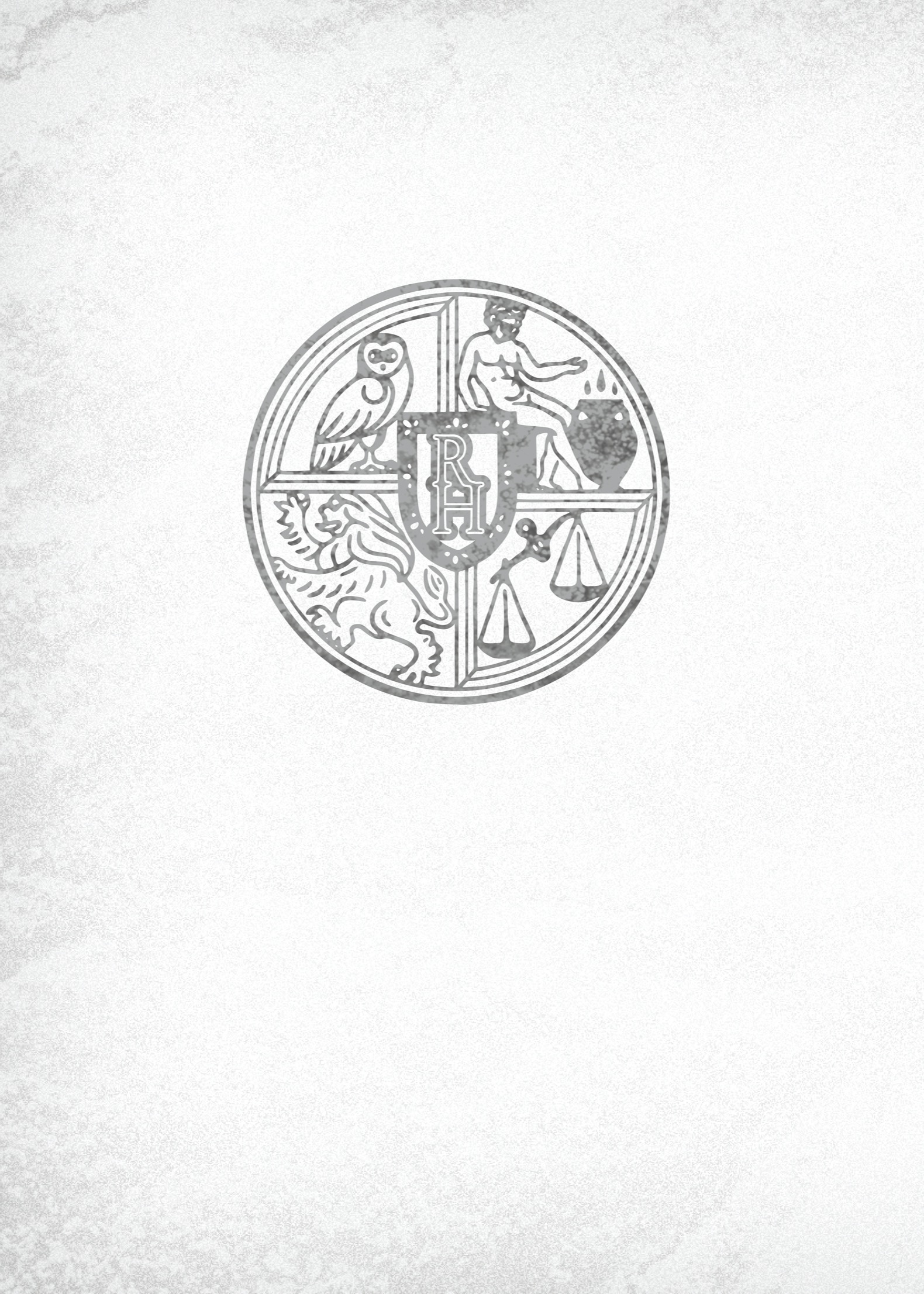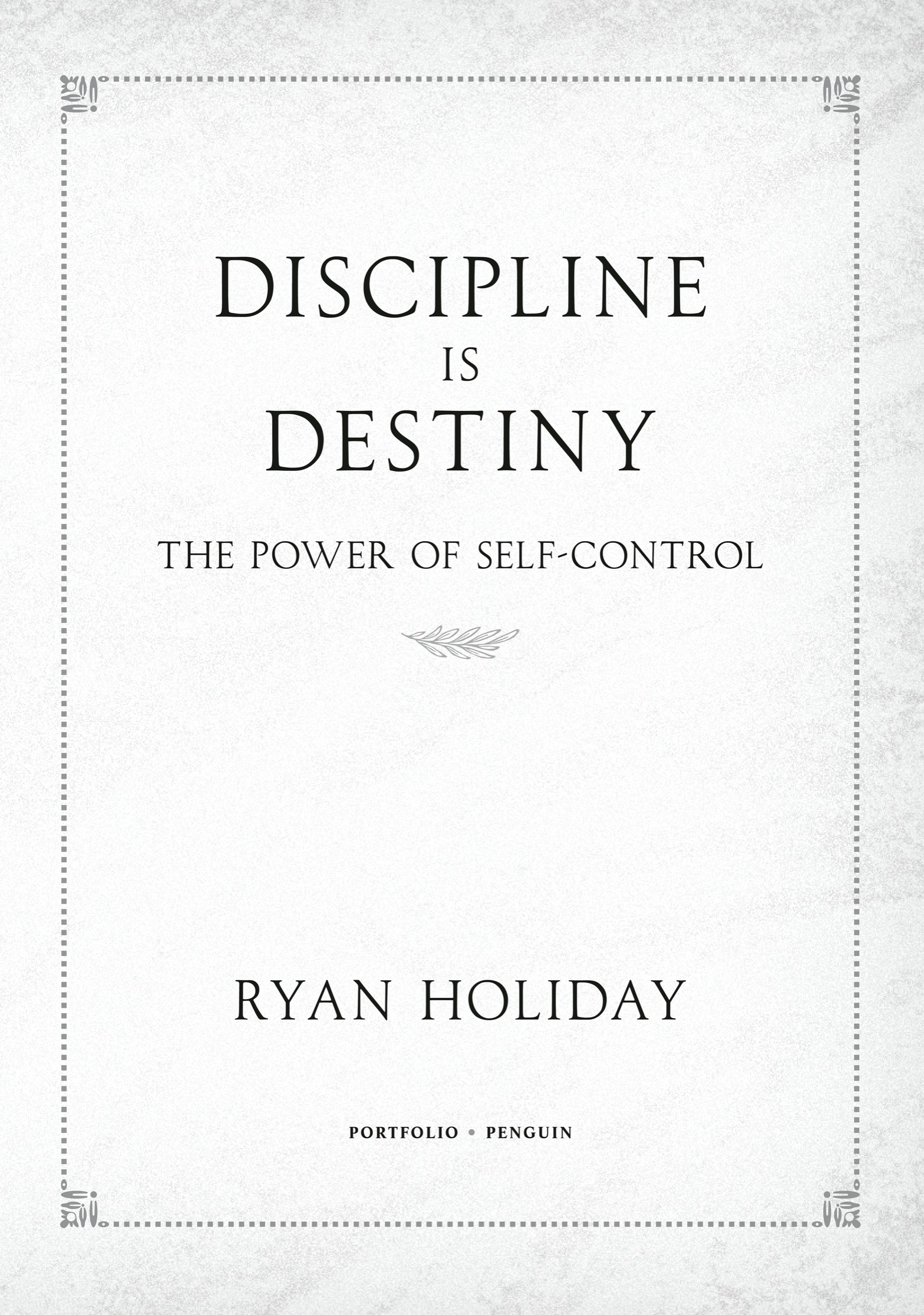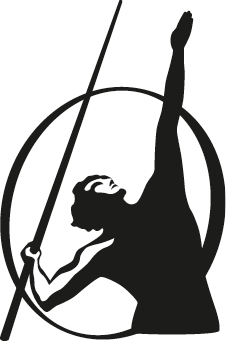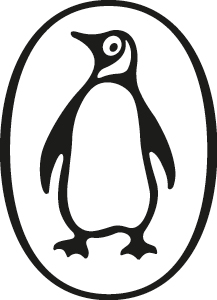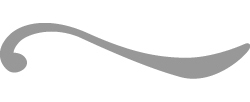Penguin Random House supports copyright. Copyright fuels creativity, encourages diverse voices, promotes free speech, and creates a vibrant culture. Thank you for buying an authorized edition of this book and for complying with copyright laws by not reproducing, scanning, or distributing any part of it in any form without permission. You are supporting writers and allowing Penguin Random House to continue to publish books for every reader.
Names: Holiday, Ryan, author.
Title: Discipline is destiny : the power of self-control / Ryan Holiday.
Description: New York, New York : Portfolio/Penguin, 2022.
Identifiers: LCCN 2022018989 (print) | LCCN 2022018990 (ebook) | ISBN 9780593191699 (hardcover) | ISBN 9780593191705 (ebook)
Subjects: LCSH: Self-control. | Conduct of life. | Stoics.
Classification: LCC BJ1533.D49 H65 2022 (print) | LCC BJ1533.D49 (ebook) | DDC 179/.9dc23/eng/20220624
Cover art: Detail of mosaic depicting a charioteer and horse, c. 3rd century AD, currently located in the Palazzo Massimo alle Terme (Rome)
Two words should be taken to heart and obeyed when exerting ourselves for good and restraining ourselves from evilwords that will ensure a blameless and untroubled life: persist and resist.
The Four Virtues
It was long ago now that Hercules came to the crossroads.
At a quiet intersection in the hills of Greece, in the shade of knobby pine trees, the great hero of Greek myth first met his destiny.
Where exactly it was or when, no one knows. We hear of this moment in the stories of Socrates. We can see it captured in the most beautiful art of the Renaissance. We can feel his budding energy, his strapping muscles, and his anguish in the classic Bach cantata. If John Adams had had his way in 1776, Hercules at the crossroads would have been immortalized on the official seal of the newly founded United States.
Because there, before the mans undying fame, before the twelve labors, before he changed the world, Hercules faced a crisis, one as life-changing and real as any of us have ever faced.
Where was he headed? Where was he trying to go? Thats the point of the story. Alone, unknown, unsure, Hercules, like so many, did not know.
Where the road diverged lay a beautiful goddess who offered him every temptation he could imagine. Adorned in finery, she promised him a life of ease. She swore hed never taste want or unhappiness or fear or pain. Follow her, she said, and his every desire would be fulfilled.
On the other path stood a sterner goddess in a pure white robe. She made a quieter call. She promised no rewards except those that came as a result of hard work. It would be a long journey, she said. There would be sacrifice. There would be scary moments. But it was a journey fit for a god. It would make him the person his ancestors meant him to be.
Was this real? Did it really happen?
If its only a legend, does it matter?
Yes, because this is a story about us.
About our dilemma. About our own crossroads.
For Hercules, the choice was between vice and virtue, the easy way and the hard way, the well-trod path and the road less traveled. We all face this choice.
Hesitating only for a second, Hercules chose the one that made all the difference.
He chose virtue. Virtue can seem old-fashioned. Yet virtuearetetranslates to something very simple and very timeless: Excellence. Moral. Physical. Mental.
In the ancient world, virtue was comprised of four key components.
Courage.
Temperance.
Justice.
Wisdom.
The touchstones of goodness, the philosopher-king Marcus Aurelius called them. To millions, theyre known as the cardinal virtues, four near-universal ideals adopted by Christianity and most of Western philosophy, but equally valued in Buddhism, Hinduism, and just about every other philosophy you can imagine. Theyre called cardinal, C. S. Lewis pointed out, not because they come down from church authorities but because they originate from the Latin cardo, or hinge.
Its pivotal stuff. Its the stuff that the door to the good life hangs on.
They are also our topic for this book, and for this series.
Four books. Four virtues.
One aim: to help you choose...
Courage, bravery, fortitude, honor, sacrifice...
Temperance, self-control, moderation, composure, balance...
Justice, fairness, service, fellowship, goodness, kindness...
Wisdom, knowledge, education, truth, self-reflection, peace...
These are the key to a life of honor, of glory, of excellence in every sense. Character traits that John Steinbeck perfectly described as pleasant and desirable to [their] owner and makes him perform acts of which he can be proud and with which he can be pleased. But the he must be taken to mean all of humankind. There was no feminine version of the word virtus in Rome. Virtue wasnt male or female, it just was.
It still is. It doesnt matter if youre a man or a woman. It doesnt matter if youre physically strong or painfully shy, a genius or of average intelligence. Virtue is a universal imperative.
The virtues are interrelated and inseparable, yet each is distinct from the others. Doing the right thing almost always takes courage, just as discipline is impossible without the wisdom to know what is worth choosing. What good is courage if not applied to justice? What good is wisdom if it doesnt make us more modest?
North, south, east, westthe four virtues are a kind of compass (theres a reason that the four points on a compass are called the cardinal directions). They guide us. They show us where we are and what is true.
Aristotle described virtue as a kind of craft, something to pursue just as one pursues the mastery of any profession or skill. We become builders by building and we become harpists by playing the harp, he wrote. Similarly, then, we become just by doing just actions, temperate by doing temperate actions, brave by doing brave actions.
Virtue is something we do.
Its something we choose.
Not once, for Herculess crossroads was not a singular event. Its a daily challenge, one we face not once but constantly, repeatedly. Will we be selfish or selfless? Brave or afraid? Strong or weak? Wise or stupid? Will we cultivate a good habit or a bad one? Courage or cowardice? The bliss of ignorance or the challenge of a new idea?

